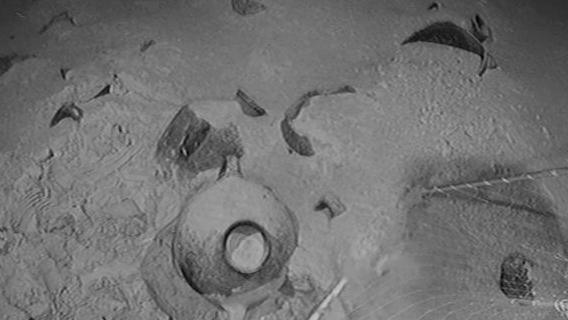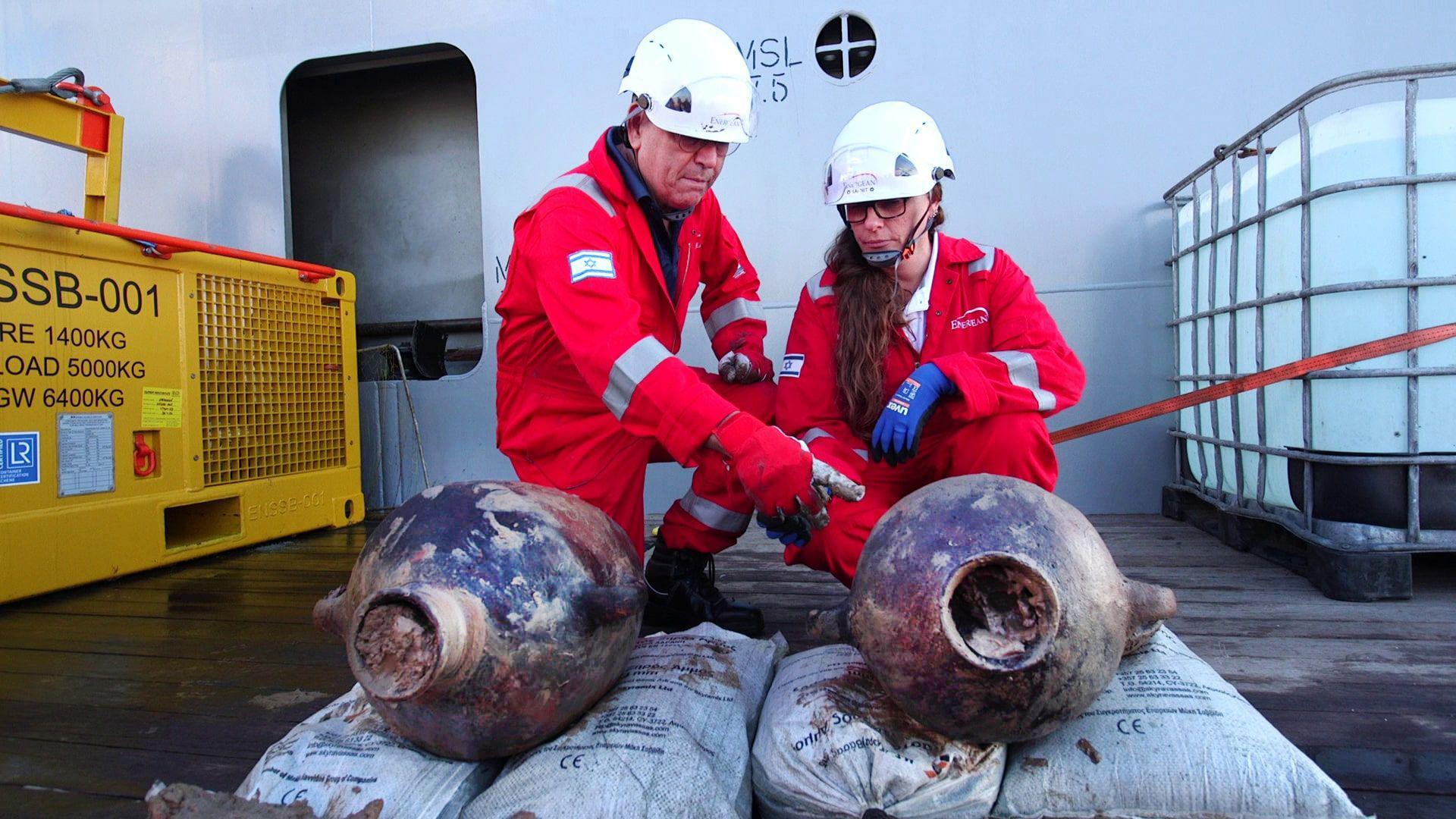Cargo from 'most ancient' shipwreck found off Israel

Two of the ancient amphorae found on the sea bed
- Published
Cargo from the remains of the oldest shipwreck to be found in the deep sea has been discovered in the eastern Mediterranean, Israeli archaeologists have said.
Hundreds of intact amphorae - ancient storage jars - believed to be 3,300 years old, were discovered 90km (56 miles) off the northern coast of Israel at a depth of 1,800m (5,905ft) on the sea bed.
Experts at the Israel Antiquities Authority (IAA) say the discovery suggests sailors of the period were able to navigate the oceans by using celestial navigation - taking bearings from the sun and stars.
The wreck was found during a routine oil and gas survey.

Images taken during the survey show the vessels sunk into the sea bed
According to the IAA, the shipwreck is the "first and oldest" to be found in the region and probably sank during a storm or as a result of a pirate attack.
"This find reveals to us as never before the ancient mariners’ navigational skills," said Jacob Sharvit, head of the IAA's marine unit.
He added it showed our ancestors were capable of traversing the Mediterranean Sea "without a line of sight to any coast".
"From this geographical point, only the horizon is visible all around. To navigate they probably used the celestial bodies, by taking sightings and angles of the sun and star positions.”
The cargo was spotted by robot submersibles belonging to the oil and gas firm Energean which was looking for potential new energy sources off the Israeli coast.
Cameras picked up "what seemed to be a large pile of jugs heaped on the seafloor", according to the company's Karnit Bahartan.

Jacob Sharvit and Karnit Bahartan with the ancient jars
Only two of the amphorae - believed to have been used by the Canaanite people who lived in an area stretching from modern-day Turkey to Egypt - were removed using specially designed tools, so as not to disturb the remaining artefacts.
Dr Bahartan described their discovery as a "truly sensational find".
She said that only two other shipwrecks with cargo are known from the late Bronze Age in the Mediterranean Sea, both of which were found relatively close to the Turkish coast using normal diving equipment.
"Based on these two finds, the academic assumption until now was that trade in that time was executed by safely flitting from port to port, hugging the coastline within eye contact," Dr Bahartan said.
"The discovery of this boat now changes our entire understanding of ancient mariner abilities.
"It is the very first to be found at such a great distance with no line of sight to any landmass," she said.
The jars are expected to go on display this summer at the National Campus for the Archaeology of Israel in Jerusalem.